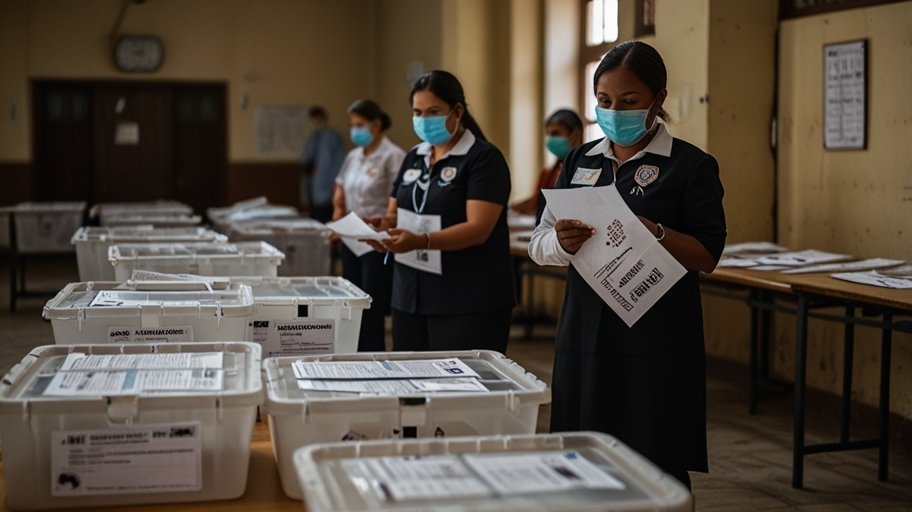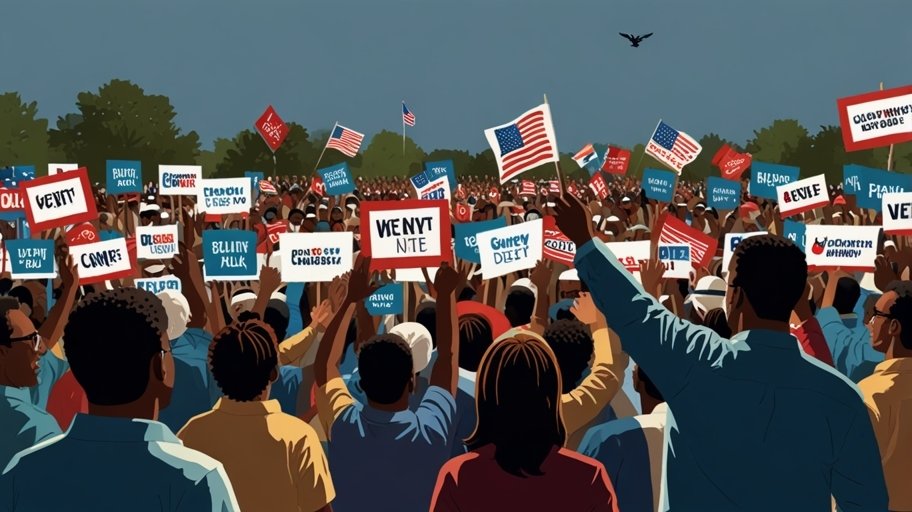The elections that took place in Guatemala in 2023 represent an important page in this country’s political book-a complex socio-political landscape and deeply rooted challenges. These elections took place amidst scandalous corruption cases, growing distrust by public opinion in political institutions, increasing inequality, and the pervasive issue of organized crime and narcotrafficking. In this context, the 2023 elections were not just a presidential race but a test of the resilience of Guatemala’s democratic system.
Historical and Political Background
Guatemala is the most populous country in Central America. Its history is marked by political instability, civil conflict, and authoritarian rule. The country went through a terrible civil war from 1960 to 1996. During this period, hundreds of thousands of innocent civilians lost their lives, a large proportion of whom were indigenous peoples. Peace was established after the peace agreements were signed in 1996. However, over the last two decades, its politics has been marred by entrenched corruption, low-quality governance, and massive military and economic elites.
Guatemala has been oscillating, post the peace accords, between democratic progress and setbacks. Corruption scandals continually plague political leaders, and among those former presidents, high-ranking officials, and judges are involved in graft cases and influence peddling. The political landscape is very polarized: on one hand, structural reforms that have to be implemented in the name of equality, impunity, and corruption, while on the other hand, one has those who would seek to maintain the status quo as the interest of the big business and military elites tend to lie there.

Guatemala’s politics is a multiparty, highly fragmented party landscape system. Political parties in Guatemala seem to be weakly institutionalized because many form around personalities rather than clear ideological platforms. This fluidity creates shifting alliances and often dissolving or rebranding parties in between election cycles.
Context Before Elections: Corruption and Public Discontent
The 2023 general elections took place at a time of political instability and public outcry. Several major corruption scandals occurred in the years leading up to the election, with some allegations involving the highest levels of government. The outgoing administration of President Alejandro Giammattei was tainted by corruption allegations, especially over the handling of public funds during the COVID-19 pandemic. This has caused erosion of public confidence in the government and a demand for greater transparency and accountability on matters to do with bathroom behavior.
The judiciary was, therefore, the best potential instrument of change; it is now highly politicized. It’s so bad that appointments for top positions like Constitutional Court judges are also battles where political elites want to be given certain protection for their own selfish interests. This led to the ousting of reform-minded judges and prosecutors, among them those who, along with CICIG, have done much of the investigation in major corruption cases. This further fuelled concerns about impunity and weakening of democratic institutions.
Socio-economic divides that underscore the 2023 election:. The country is facing a deep development crisis, whereby above half of the population has already crossed the poverty line and even chronic malnutrition faces a huge number of underfives. These are primarily issues for the native communities, which comprise around 40% of its population. These groups have been marginalized for decades and excluded from political and economic power, and their claims over land rights, education, and healthcare are silenced by the central government.
This made the 2023 election the critical time when citizens were demanding change and accountability with their leaders.
Main Contestants and Parties
Several political parties and candidates competed in the 2023 elections, reflecting the diverse and fragmented nature of Guatemalan politics. The most prominent contenders were drawn from both the traditional political class and newer reformist movements, reflecting the range of political ideologies and priorities within the electorate.
Sandra Torres (National Unity of Hope – UNE) : Sandra Torres is a former first lady and veteran politician. She was the candidate for the National Unity of Hope (UNE), one of Guatemala’s largest and most established political parties. Torres previously ran for president in 2015 and 2019, losing in the second round both times. Her platform emphasized the social programs of expansion for poor and rural voters, a strategy under which UNE had significant support in the previous elections, but she was also met with lawsuits and corruption cases that sullied the campaign. Nonetheless, during her presidency, she remained very polarizing with a vast base of rural voters, who gave her a kind of a lifeblood even when these accusations were raging.
Edmond Mulet from the Cabinet for the People Party : The most significant contender in this election was Edmond Mulet, a long-time diplomat and former official of United Nations. Mulet is from the CABAL, a centrist force representing and seeking distance itself from corrupt politics and polarized ideologies that had so far featured Guatemalan politics, emphasizing transparency and anti-corruption reforms and modernization towards improved economic activities. His international diplomatic experience and relatively clean image appealed to the urban middle -class voters seeking a pragmatic alternative to the traditional political establishment.

Bernardo Arévalo (Movimiento Semilla – Seed Movement) : Bernardo Arévalo, the Movimiento Semilla, surprised everyone in the 2023 elections. Following the 2015 protest rallies demanding anti-corruption and forcing then-President Otto Pérez Molina to resign, this was a rise of Semilla, the progressive and reform-oriented party. Arévalo’s campaign focused on confronting systemic corruption, democratic institutionalism, and social justice as a whole. It caught attention among those in the group of younger voters, especially urban progressives and disenchanted traditional political elites.
Zury Ríos (Valor Party) : The Valor Party’s candidate was Zury Ríos, daughter of the former dictator Efraín Ríos Montt. Ríos, a polarizing figure for many due to her father’s reputation, campaigned as a conservative on a strong law-and-order platform. Her campaign called for security and a renewed crack down on organized crime and narcotrafficking that have long been entrenched in Guatemala. Despite the shadow of her father’s violent regime, Ríos attracted support from conservative voters and those seeking stability in the face of rising crime rates.
Major Issues in the 2023 Elections
Several key issues dominated the 2023 election campaign, reflecting the broad concerns of the Guatemalan electorate.
Corruption and Accountability : The question of corruption dominated the 2023 elections, with candidates on all sides positioning themselves as champions to clean up graft and restore trust in institutions. This was a defining issue for voters, given a history of impunity and several high-profile scandals in recent years. Against that backdrop, campaign messages targeting corruption came from newcomers like Arévalo and Mulet, while more established figures like Torres and Ríos had to answer questions about their connections to corrupt networks.
Poverty and Inequality : Poverty and inequality have deep roots in the country, most of all affecting rural and indigenous communities. Malnutrition is widespread, healthcare is a challenge, and educational outcomes are not up to scratch. These are some of the challenges which dominated the campaign. The candidates have strategies to address these issues. Torres committed to expand social programs while Mulet focused on investing in infrastructure and education, thus driving economic growth and increasing jobs creation.
Security and Organized Crime: Again, like in the last election, organized crime, which was drug trafficking in the case of Guatemala, proved to be a severe challenge. Candidates such as Zury Ríos were strongly focusing on law-and-order policies and promised to increase crime control measures. It will be a daunting task for the new president to handle criminal organizations in national politics, law enforcement, and local governments.
Judicial Independence and Democratic Integrity: The 2023 elections marked a continuing concern over judicial independence together with the weakening of democratic institutions. Such actions as the politicization of the judiciary and the sacking of anti-corruption prosecutors were manifested as attempts by the larger political elites to entrench their positions for protection from prosecution. Candidates like Arévalo insisted that judicial independence be restored and democratic institutions strengthened as top priorities.
Indigenous Rights and Social Inclusion The indigenous populations of Guatemala have been marginalized and excluded from political and economic decision making for generations. Some 2023 candidates campaigned on issues of land reform and education and access to health services for indigenous peoples. However, entrenched racism and discrimination continue to limit meaningful political inclusion of the indigenous.
The Electoral Process and Challenges
The electoral process in Guatemala has faced several challenges in the last few years, including allegations of fraud, intimidation of voters, and exclusion of some candidates from the ballot. The 2023 elections have raised concerns about the transparency and fairness of the electoral process, especially since there were attempts to bar some reformist candidates and reduce the participation of opposition figures.
One of the biggest controversies leading up to the 2023 elections was the TSE’s disqualification of several candidates. Many regarded such disqualifications as politically motivated, aimed at safeguarding the interests of the political elite. The elimination of such a candidate as Thelma Cabrera-the indigenous and anti-corruption figure-sent alarm bells ringing about the integrity of the electoral process and the full participation of the marginalized in democratic life.

Conclusion
The 2023 general elections in Guatemala are an important moment for the country’s democracy. The election campaign brings forth the deep-seated challenges facing Guatemala, from corruption and inequality to the dominance of organized crime and weakness in democratic institutions. Beyond the immediate future of politics in Guatemala, which the election results will determine, it is likely that the challenge of transparency, accountability, and social justice will define the future politics of the country.
Much will be expected of the new government to finally bring reform and meet the long-overdue needs of this population. Whether this election will prove to be the springboard to meaningful change or further entrench the status quo will be known in the future, but nothing has ever ridden this high in potential for Guatemala’s future.
